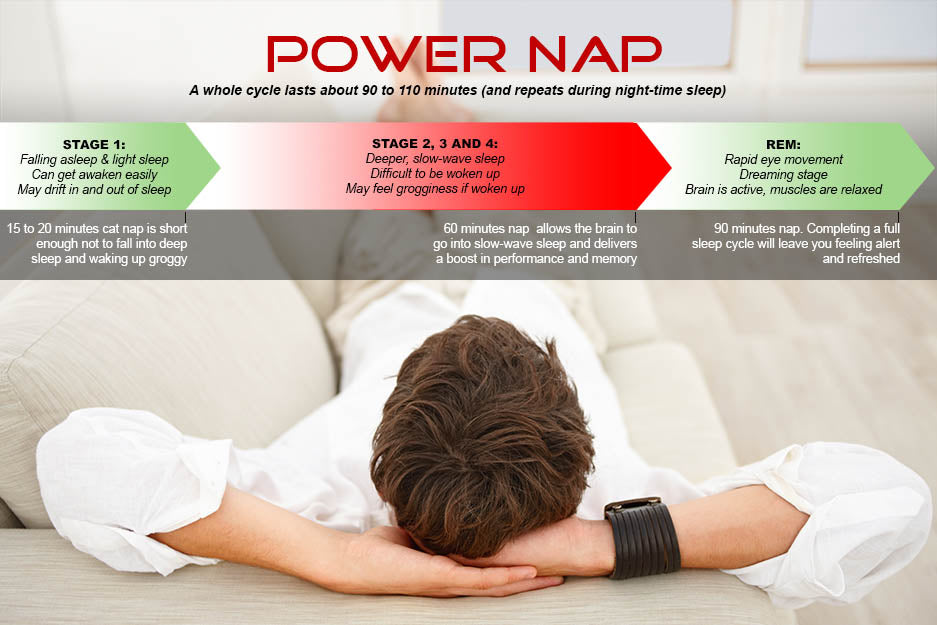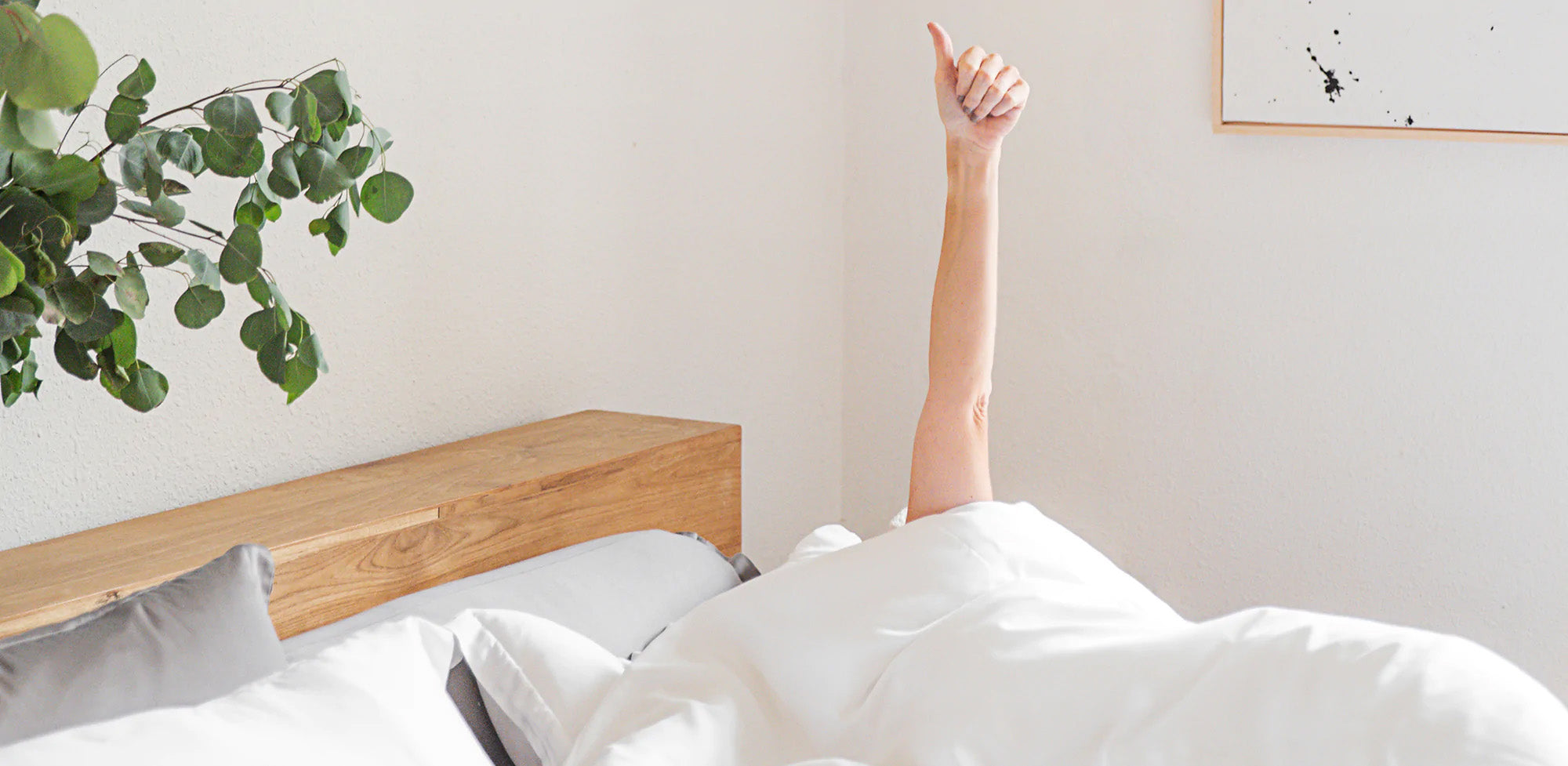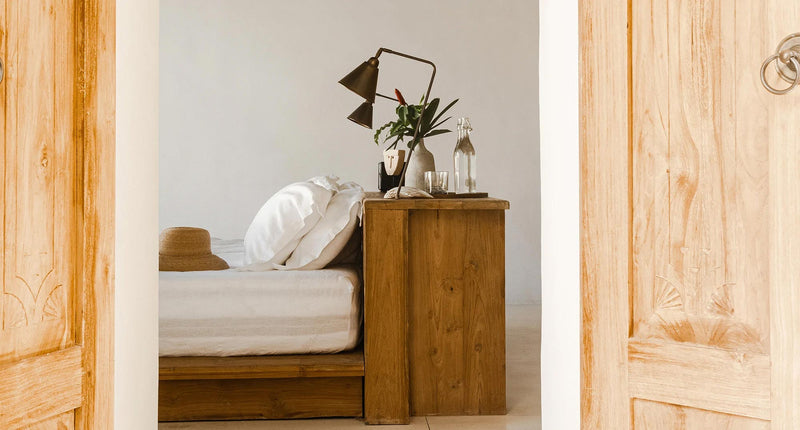Are you feeling sleepy or low on energy? If you didn't sleep well the night before - or simply have very long days - you may benefit from a nap. But the big question is: how long to nap for optimal energy and to feel rested? Too short and you won't be recharged enough. But if you nap for too long, you'll risk feeling groggy and disoriented upon waking.
What is the best length of time to nap?
There are several schools of thought on this, depending in part on the overall reason for the nap:
- The 15 - 20 minute power nap. The theory behind the 15 to 20 minute power nap is that it is short enough that there is no risk of falling into too deep of a sleep and waking up groggy (see reference 1). This length of nap can be greatly effective in reducing the dangerous risk of falling asleep on the job for those with jobs involving aviation, trains, and other transportation. However, the downside of the power nap is that few people can fall asleep on demand for such a brief time.
- The 60 minute nap. The idea here is that longer naps help recharge the body and the mind. The 60 minute nap allows the brain to go into slow-wave sleep and delivers a boost in performance and memory (see reference 2).
- The 90 minute nap. One full sleep cycle, from first falling asleep all the way to REM sleep, is 90 minutes long on average (see reference 3). Completing a full sleep cycle will leave you feeling alert and refreshed, as opposed to feeling groggy if you had woken up mid-cycle. By completing your REM sleep cycle, your creativity will also be boosted (see reference 2).
Regardless of which of these three options you pick for your nap, you'll want to ensure you wake up refreshed. Experiment with each of these different length naps if you're not sure: set an alarm. Another option for maximizing your post-nap energy is to drink a cup of coffee immediately before napping (reference 3). By the time you're done with your nap, the caffeine will have kicked in, giving you an extra boost for when you wake up.

How long of a nap is too long?
Napping for more than two hours is not recommended, as it can lead to difficulty sleeping at night. There are a few exceptions to this rule, for example if the individual is specifically using a biphasic sleep pattern with a briefer-than-standard night time sleep and with a nap built into the daytime routine. Another exception is someone who could be expected to genuinely need extra rest, for example a patient recovering from illness, or an elderly person.
Be warned that too long of a nap can also be a sign that something is wrong: an underlying medical condition, for example. This has been shown in a recent study, where people who consistently napped for over an hour a day were later found to be more likely to die early (reference 4). Obviously, it's not the naps that are thought to be causing this, but instead that the need for long naps is likely to be brought upon by the underlying medical condition. Cancer, heart disease and respiratory illness tended to be among the causes of death for those who napped for over an hour a day (reference 4).
So if you find yourself getting plenty of sleep at night and still requiring a nap every day of over an hour in length, it may be worthwhile to go to the doctor for a check-up.
Another problem with napping for over two hours is that it can be an indication that you're simply not getting enough sleep each night. In other words, a long nap can be a symptom of poor night time sleep, and not a proper solution in itself. If this is the case, fix the original problem by getting more sleep at night. Make a point of going to bed earlier - odds are you'll feel so refreshed that you may not need to nap during the day anymore! A more comfortable mattress can also make for a better quality of night time sleep, so consider purchasing a latex mattress for the ultimate in restful sleep.
Napping may not be suitable for you if….
- You suffer from insomnia. If you have trouble getting to sleep at night, or staying asleep, you should avoid daytime naps. It has been shown that insomniacs who take daytime naps have a harder time falling asleep at night (reference 3).
- You are a caregiver to young children. It only takes an instant for an inquisitive toddler to get into a harmful or potentially fatal situation. So parents of young children should not try to take a nap while their children are awake. Be alert at all times. Of course, if your toddler is taking his or her own nap in a safe place (e.g. their crib), then you can go ahead and take your own nap during this time. Otherwise, put safety first.
Alternatives to napping

What if you're in one of the above situations where it would be unwise to nap? Or what if you're at work and it would be very inappropriate to nap? Relax, we've got you covered. There are several refreshing alternatives to napping:
- Drink a caffeinated beverage. This is a 'quick fix' and not a long term solution to your sleep woes. However, drinking a cup of coffee will temporarily increase your alertness so at a pinch you can substitute that for a nap. Now for the bad news: you may feel more awake, but drinking coffee will not help restore memory function the same way a nap would (see reference 2).
- Take a walk outdoors. A short yet invigorating walk outside can deliver a big energy booster at a time when you might normally want to nap (reference 3). Part of this effect is due purely to the physical activity. The other part is due to the sunlight. Exposure to sunlight inhibits the production of the sleep-inducing hormone melatonin, banishing those mid-afternoon blues.
- Rest for 10 minutes. If you are tired, even a ten minute period of rest can be a big help. Sit down or lie down and just relax your body. Don't use any electronic devices during this time: that doesn't count as resting! You can get surprisingly big benefits from a rest, even if you don't nap.
Conclusion
There are several schools of thought as to what is the best length of time to nap for energy. Whether you choose a short power-nap, a mid-length nap or a full sleep cycle is entirely up to you. These options will take anywhere from around 20 to 90 minutes, so you can be certain of benefiting from increased alertness if you nap from 20 to 90 minutes.
In contrast, consistently napping for over two hours is not considered beneficial for energy, and could even indicate an underlying medical condition.
If you want to nap, but are not in a situation to do so, then some short-term alternatives are coffee, a walk outdoors or just resting.
Overall, napping is a great strategy for you to gain energy when the nap is from 20 to 90 minutes in length. Enjoy feeling refreshed and invigorated and ready to tackle anything!
References:
1. Tom Geoghegan "Who, What Why: How long is the ideal nap?" BBC News, 28 April 2011
http://www.bbc.com/news/world-us-canada-13232034
http://www.bbc.com/news/world-us-canada-13232034
2. Jennifer Soong "The Secret (and Surprising) Power of Naps" WebMD, November 29 2011
http://www.webmd.com/balance/features/the-secret-and-surprising-power-of-naps
http://www.webmd.com/balance/features/the-secret-and-surprising-power-of-naps
3. "Napping Tips: 7 Expert Strategies for Maximizing Your Naptime" Huffington Post, May 28 2013
http://www.huffingtonpost.com/2013/05/28/napping-tips-expert-strat_n_3320571.html
http://www.huffingtonpost.com/2013/05/28/napping-tips-expert-strat_n_3320571.html
4. Rachel Nuwer "Mid-Day Naps Can be a Sign of Bad Health" Smithsonian Magazine, April 15 2014
http://www.smithsonianmag.com/smart-news/consistently-needing-take-long-mid-day-naps-might-be-indicative-underlying-health-problem-180951071
http://www.smithsonianmag.com/smart-news/consistently-needing-take-long-mid-day-naps-might-be-indicative-underlying-health-problem-180951071












